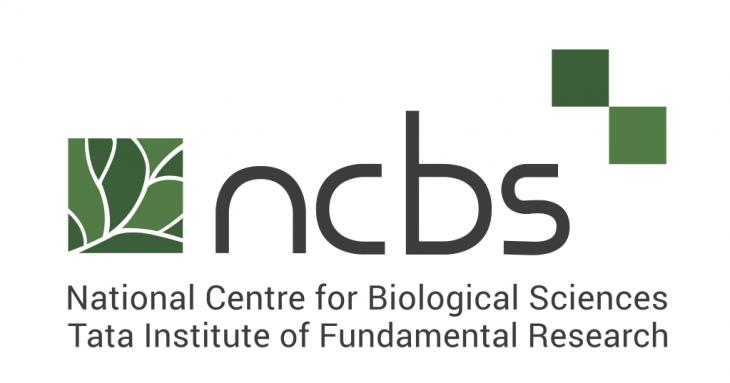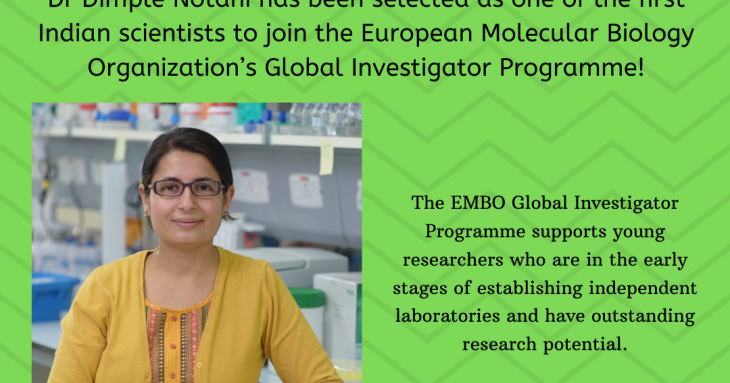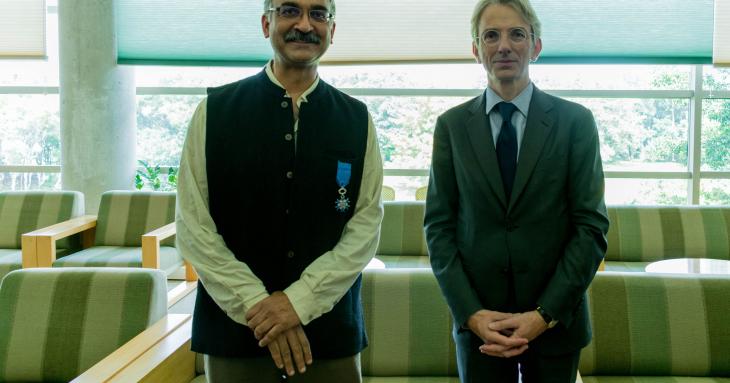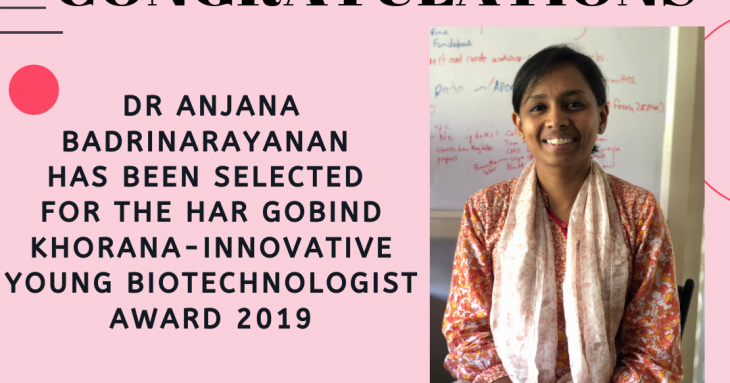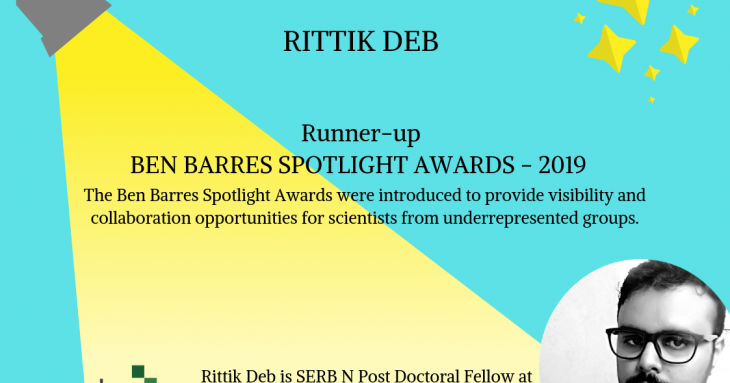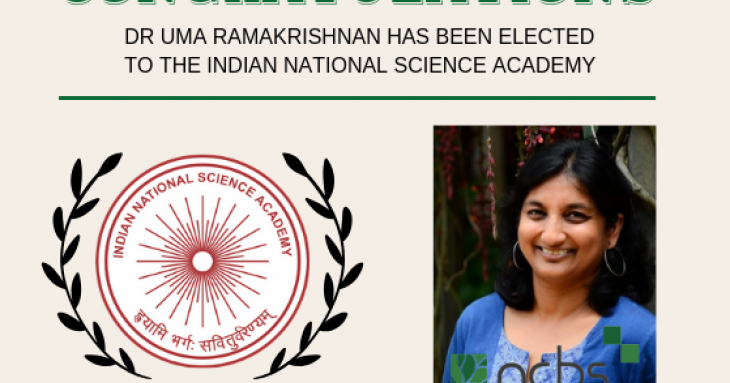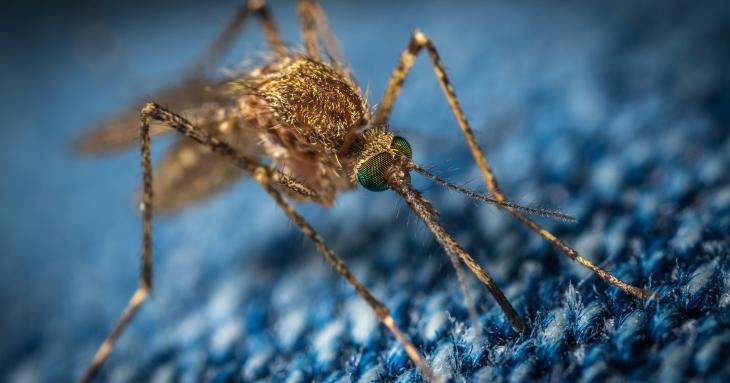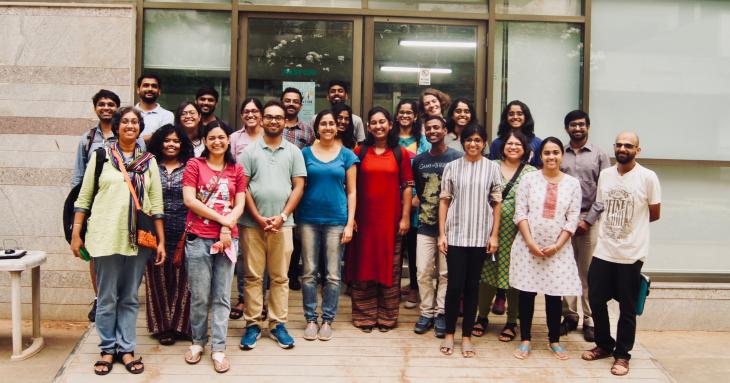-
NCBS Press Statement: 3rd February 2020
This press release is in reference to media reports that grossly misrepresent the facts concerning a study of bats in Nagaland. We are issuing this statement to correct the record, in the public interest. We strongly appeal to the media, stakeholders, and the public, to only obtain information from reliable and verified sources, and to help prevent the spread of misinformation and panic during a global public health crisis.
-
In Memoriam: Dr M.K. Bhan
It is with deep sadness that we acknowledge the passing of Dr M K Bhan on 26th January 2020, in Delhi.
-
Congratulations! Dr Dimple Notani selected for EMBO Global Investigator Programme
Dr Dimple Notani of the National Centre for Biological Sciences, Bangalore has been selected as one of the first life scientists from India to join the European Molecular Biology Organization’s Global Investigator Programme.
-
Congratulations! Satyajit Mayor conferred the Chevalier de l’Ordre national du Mérite
Prof. Satyajit Mayor, Director of the National Centre for Biological Sciences (NCBS-TIFR) was conferred the distinguished Chevalier de l’Ordre national du Mérite (National Order of Merit), by the Ambassador of France to India, Mr. H.E. Emmanuel Lenain on 19th November, 2019.
-
Congratulations! Dr Anjana Badrinarayanan selected for Har Gobind Khorana-Innovative Young Biotechnologist Award 2019
Dr Anjana Badrinarayanan has been selected for the Har Gobind Khorana-Innovative Young Biotechnologist Award 2019.
The Innovative Young Biotechnologist Award (IYBA), initiated in 2005, is a career-oriented award to identify and nurture outstanding young scientists with innovative ideas and desirous of pursuing research in frontier areas of biotechnology.
-
Congratulations! Dr Rittik Deb selected as a runner-up for the Ben Barres Spotlight Award
We are delighted to announce that Rittik Deb, a post-doctoral student from Dr Deepa Agashe's group at NCBS has been selected as a runner-up for the coveted Ben Barres Spotlight Award.
The Ben Barres Spotlight Awards were introduced to provide visibility and collaboration opportunities for scientists from underrepresented groups. We hope this translates into tangible benefits for his research.
-
Congratulations! Prof. Gaiti Hasan elected Vice President of INSA
Prof. Gaiti Hasan, a molecular geneticist at the National Centre for Biological Sciences (NCBS), was recently elected as Vice President of the Indian National Science Academy (INSA). After thirteen years as a fellow of INSA, this year, the Academy has sought her counsel in strengthening their activities and initiating new programmes.
-
Congratulations! Dr Uma Ramakrishnan elected fellow of INSA
Dr. Uma Ramakrishnan, a population geneticist at the National Centre for Biological Sciences (NCBS), was recently elected to the Indian National Science Academy (INSA). This is a proud moment for NCBS, and we were eager to know what it means for Dr. Ramakrishnan.
-
Collaboration is key to the biomedical ecosystem
June 2019: The Indo-African Dengue Vaccine Development
-
Crafting Communication – Recollections of a BLiSC Workshop
Reflections on conducting a Science Communication Workshop at BLiSC
The Communications Office of the Bangalore Life Sciences Cluster organised a workshop titled “The Craft of Science Communication” for its campus members in May this year– the first of its kind designed and executed entirely in-house.


